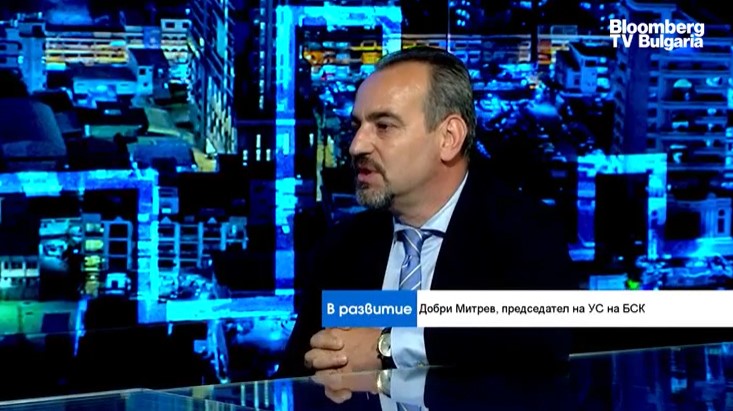The President of BIA with an interview for Bloomberg TV
Bulgaria has been meeting all the requirements for Schengen membership for years, the obstacle for Sofia and Bucharest being internal problems and resistance from the Netherlands and Austria. Both countries' membership is supported by the EC and the EP and these institutions, as well as Bulgarian diplomacy, should make efforts to overcome the resistance. This was commented by Dobri Mitrev, President of the Board of BIA.
"The EU will be better able to guard external borders with third countries. If Bulgaria and Romania become members of the Schengen area, we can reinforce our border crossings with Turkey, North Macedonia and Serbia, and free up those resources that are on the border with Greece and Romania and redirect them where they are most needed. The wave of immigrants through Bulgaria passes through the border with Turkey - then we can protect Europe much more from this external pressure."
Schengen membership will have only positive effects for the country - from saving costs and time for business, facilitating ties with Greece and Romania and developing the border regions, Mitrev believes. The abolition of land borders could also redirect some of the freight to CEE, which now passes through the Suez Canal and the Mediterranean on its way to Rotterdam, via Bulgaria and Romania, he added.
"The economic impact will be from cost and time savings... The opportunity for cross-border cooperation much greater than before, the opportunity for more trade and tourism."
Croatia's accession to the euro area and Schengen on January 1, 2023, could be a good example of the great incentives the two memberships bring to the economy, Mitrev believes. Croatia has shown that the introduction of the euro does not raise prices and the welfare of citizens will only increase from this.
A good clarification campaign about the euro area should be conducted in Bulgaria, because in recent years only negative messages have dominated the public space. In practice, Bulgaria is only suffering the negatives of the decisions in the euro area at the moment, as it is not a member, but the Bulgarian lev is pegged to the euro.
"Our banknotes say lev, but our reserve currency is euro. We have had a fixed exchange rate to the euro since the time when we pegged the Bulgarian lev to the German mark - with the introduction of the euro in 2002 we automatically pegged to it. If we have two leva in our pocket, we effectively have a euro and something."
With the full-fledged accession to the currency union, our country will have a voice in the European Central Bank's decision-making and will also benefit from the positives of using the second most stable currency in the world, Mitrev said. According to him, it is not a good idea to introduce the simultaneous use of the euro and the lev before Bulgaria's accession to the euro area, as there could be negative consequences with price distortions.
The National Assembly should adopt a decision that Bulgaria will become a member of the euro area on January 1, 2025, and the time until then should be used for an information campaign, Mitrev said.









